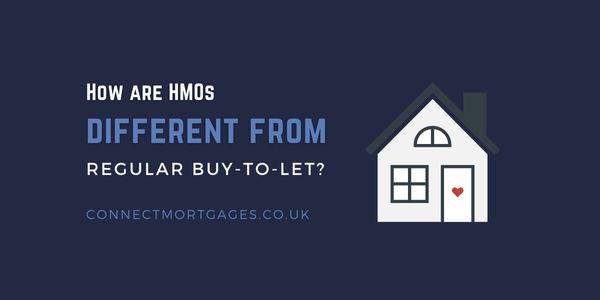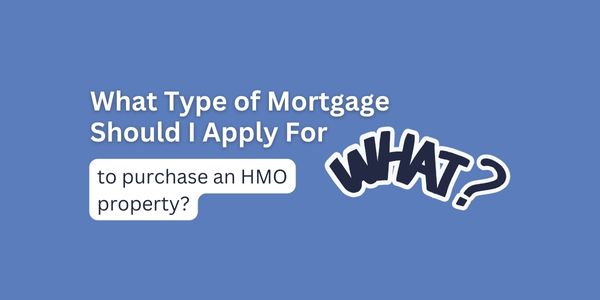Are you planning to purchase a property to rent out to more than three tenants? If so, you will need a House-in-Multiple-Occupation (HMO) mortgage. This article outlines key information landlords need about these mortgages and how to apply for one. An HMO mortgage is designed for those renting their property to multiple individuals rather than a single-family or household.
Obtaining an HMO mortgage is essential if you intend to rent the property to three or more people.
As the UK population grows and fewer people can afford to buy a home, renting rooms in shared accommodation has become increasingly popular. Today, the private rental sector offers a wide range of properties suitable for HMOs.
An HMO is a residential property where multiple tenants not part of the same family live together. These shared living arrangements are ideal for students and professionals looking for affordable housing and the chance to socialise. If you are considering renting out a property, you may need an HMO mortgage.
This guide explains how HMO mortgages work, where to apply, and the risks involved with this type of loan.
What is an HMO?
An HMO is a house with multiple occupations, a property shared by three or more tenants not part of the same household. It will often be a flat or house shared by students or working people who need help to rent a whole property.
Households, which can be comprised of an individual, couple or family group, are each allocated their own private space in an HMO.
Nonetheless, they must still share communal areas such as kitchens, living rooms, and bathroom amenities. Typically, tenants will have individual tenancy agreements, but students may be subject to a collective agreement instead.
For landlords, HMOs are highly profitable investments since they can charge rent per room. However, if you plan to purchase a house for this purpose, remember you’ll need an exclusive HMO mortgage.
How are HMOs different from regular buy-to-let?

A traditional buy-to-let property typically suits a single person or family and, in rental terms, implies a solitary payment on either a weekly or monthly basis.
Utility bills are also to be covered by the tenants. This is what we call “single lets”.
Now let’s unearth why an HMO could be more profitable than your conventional buy-to-let with this simple mathematical equation:
Traditional buy to let
- 3 detached bedroom house with 2 reception rooms
- Rented to a typical 4.2 family
- Monthly rental income = £860
- Annual rental income = £10320
HMO buy to let
- 3 detached bedroom house with 2 reception rooms
- Converted 1 of the reception rooms into a bedroom
- Rented to 4 single-working professionals
- Monthly rental income per tenant = £500
- Monthly rental income = £2000
- Annual rental income = £24,000
With the example given, it’s plain to see why landlords gravitate towards HMO properties. The difference in rental income can be enormous.
Even though renting a single room is cheaper than owning an entire property, when combined with other tenant leases, it often exceeds what would usually be charged if one family inhabited the space.
This makes the landlord more likely to benefit from higher income from an HMO—a win-win situation!
Why convert into an HMO?
The profit-amplifying capabilities of HMOs make them attractive to landlords, who can capitalise on the opportunity for a more significant number of tenants and potentially larger yields. In addition, achieving higher rental income is an enticing prospect that makes running a portfolio more efficient.
By having multiple tenants, landlords gain added security. For example, if one tenant defaults on rent or vacates the property, other renters still support their income, providing financial stability.
HMOs can benefit both parties involved, so they are becoming increasingly popular. From a tenant’s point of view, renting an HMO offers the potential for reduced rent payments and the opportunity to live with more people if desired.
What type of mortgage should I apply for to purchase an HMO property?

An HMO mortgage is essential if you’re looking to rent out your property to multiple households. Otherwise, regular buy-to-let mortgages are only intended for single-household tenants and thus won’t be applicable in this case.
Transgressing the terms of a standard mortgaging agreement by taking one on an HMO asset could bring legal repercussions from lenders, so don’t hesitate to secure that specialised mortgage.
Investing in a Buy to Let mortgage is more economical, with lower rates and fees than other types of mortgages.
Still, it’s also easier for applicants since the required criteria are much less rigid. Moreover, the extra revenue from running an HMO generally covers any additional costs of this type of loan.
The benefits & drawbacks of HMO
With most things in life, there are generally pros and cons, and HMOs are no exception. It would help to consider the positives and negatives before deciding how to proceed.
Pros
- Renting out your space room-by-room can be even more rewarding as you can set higher rent prices per room.
- Having a license to let rooms can make evicting an occupant much simpler.
- You are not prohibited from using communal spaces, only private rooms.
- Opting to rent out your property individually instead of en masse can help mitigate any potential losses in rental income should one tenant decide to vacate the premises.
Cons
- You can reimburse yourself through rent payments for the bills you are responsible for paying and managing.
- When tenants with different personalities move in, it can be challenging to predict the outcome. This lack of compatibility could result in friction and potential problems.
- A tenant is solely responsible for their room and jointly shares accountability with other members in a group for any damage to common areas. This makes it more difficult to accurately point out who is at fault if there are damages, as opposed to groups fully responsible collectively or independently.
- With a greater tenant turnover rate, you may face higher advertisement costs, administration and vacancies.
- If you choose not to employ a managing agent, be sure you allot adequate time in your schedule for administrative tasks, repairs and inspections.
Final Thought
Converting a property into an HMO can benefit landlords, tenants, and the local economy. However, it is vital to fully understand the requirements before making any decisions. Seeking professional advice, if needed, is also recommended. Specialised mortgages are often required for HMOs, and the additional income can help cover extra costs linked to this type of loan. Carefully assess the advantages and disadvantages to make an informed decision before proceeding.
Thank you for reading our “HMO Mortgages Guide | Produced by Connect Mortgages” publication. ” Stay “Connect“-ed for more updates soon!







